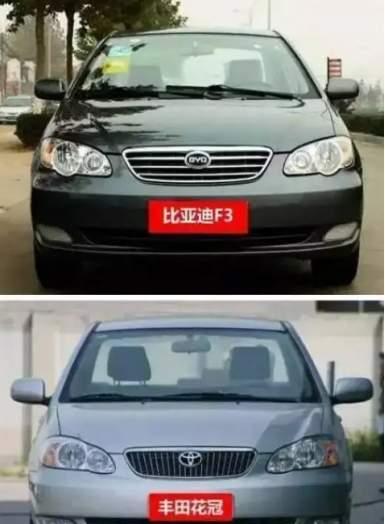According to the association data, in April 2022, the retail sales of new energy passenger cars reached 282,000 units, an increase of 78.4% year-on-year and a decrease of 36.5% month-on-month. The domestic retail penetration rate of new energy vehicles in April was 27.1%, an increase of 17.3 percentage points from the penetration rate of 9.8% in April 2021.
Due to the large-scale production cuts caused by tight supply chains, the sales of new energy vehicles in April did not reach the imagination of StarSky Jun, but despite this, the penetration rate of 27.1% has shown that more and more new car owners have begun to actively choose new energy vehicles.
BYD's sales of new energy vehicles in April reached 106,000 units, accounting for more than a third.
Xingkong Jun once said that the new energy era is a joint strangulation of the Japanese automobile industry by the forces of China, the United States and Europe.
Have you found that all the new energy technologies in Japan have risen early and rushed to catch up late?
Whether it is the oil-electric hybrid technology that started very early, or the recent hot hydrogen fuel technology... Japan was the first to study but was left far behind.
Are they all coincidences?
No, it's all conspiracy.
The United States and Europe have the world's largest automobile consumer market, with about 20 million vehicles sold in the three markets every year. In the era of fuel vehicles, these three markets are the world of Europe (Germany) and the United States and Japan.
In the era of new energy vehicles, all three markets have introduced local protectionist policies to protect their new energy vehicle brands. Of course, Musk's Tesla is a monster, and it has received subsidies in china, the United States and Europe.
What about Japanese cars?
China, the United States and Europe pretended not to see it.
These three markets are large enough to feed their own brands, while the Japanese automobile consumer market is only about 5 million, and it is mainly low-energy home cars, and it is impossible to cultivate their own brands.
Toyota went to China to form a joint venture with BYD.

Can you imagine Toyota starting a joint venture with a Chinese brand that started with its own corolla that was clumsy a decade ago?
Because Toyota has no choice.
Many people believe that Toyota has accumulated a lot and will definitely be able to strike later. However, the truth is that whether it is hybrid technology or pure electric technology or battery technology, Toyota has "wrong" the technology tree.
Of course, this is not Toyota's fault, but the government-led market, deliberately bypassing Toyota's technical route.
This is true in both China, the United States and Europe.
So, who is most likely to replace Toyota?
BYD?
Starry Sky Jun feels that BYD is currently focusing on the domestic market, and the international market giants are still a little bit of a king.
It is Geely that has the potential to replace Toyota.
After the acquisition of Volvo, Geely, also known as the majority shareholder of Mercedes-Benz's parent company, went to Malaysia to acquire Lotus (Star Jun has repeatedly said that the ASEAN market of 700 million people is a market that Chinese companies attach great importance to).
Star Jun's friend booked a pure electric Mercedes-Benz Smart, which is designed to be better than the old version for more than one generation.
This car was developed and produced by Geely and sold from domestic factories around the world.
What the? Some people question Geely's car-making technology?
Volvo find out.
On May 10, Geely Automobile announced that it will hold a 34.02% stake in Renault Korea Automobile through its subsidiary, Centurion Industries Limited (abbreviated as "CIL"), and launch fuel and smart hybrid models in the Korean market. The new car will be produced at Renault Samsung's plant in Busan, South Korea, and mass production is expected in 2024.
In terms of the internationalization of Chinese car companies, if Geely is called second, no one dares to call it first.